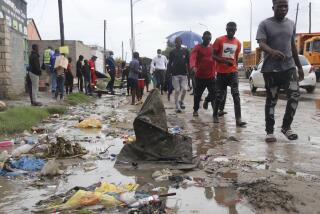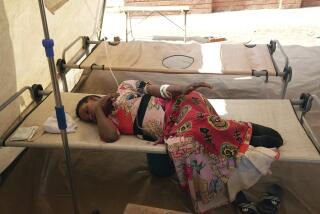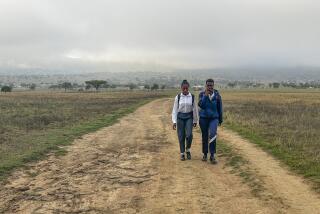The African scourge
TEN MILLION AFRICANS ARE infected with HIV. Eighteen million have already died from the virus. One in four children in southern Africa has been orphaned. Forty-three million more Africans will die of AIDS by 2010.
From December 2000 through the summer of 2006, I pursued some of the individual stories behind these grim statistics, in four African countries. I began in Harare, Zimbabwe, an epicenter of the AIDS epidemic, where these photos were shot. At first, it was difficult to grasp that 35% of that beautiful country’s population is HIV-positive; every week, 3,000 people there die from AIDS-related illnesses. In nearly every Zimbabwean home, someone is sick or dying of AIDS.
The country’s overwhelmed and largely ineffective healthcare system provides almost no access to medical treatment, no family planning and very little sex education. Indeed, the slogan of the healthcare program proclaims that “Home Care Is Better Care.”
The elderly are forced take care of their adult children dying of HIV/AIDS, and their children’s children, on small government pensions. Ten-year-olds are compelled to join the workforce. Young girls often fall prey to older HIV-infected men who entice them with gifts and financial support. A vicious cycle of unemployment, poverty and the spread of the virus rolls on.
A generation of factory workers, educators, medical personnel and political leaders has been lost to the disease. The subsistence farm culture is being wiped out, and the collective spirit of the nation is at risk. It is impossible to assess the ultimate emotional and cultural impact that HIV/AIDS is wreaking on the Zimbabwean people.
And yet I was struck by the strength of so many, especially in the country’s HIV support groups. Despite their own desperate need, volunteers take time to care for those dying of AIDS. They bravely lend assistance to others, knowing that, ultimately, they will share the same fate. Their strength of character is remarkable.
In the U.S., people often tell me that nothing can be done to effect change in Zimbabwe. They fear that the scope and complexity of the AIDS problem there is too great. The readiness I discovered among the Zimbabwean people to tackle the problem can’t be underestimated. They could serve as examples for us all, and with even a small amount of assistance, they could make great progress against the spread of HIV/AIDS.
*
Photographs and text by Kristen Ashburn: Contact Press Images
More to Read
Start your day right
Sign up for Essential California for news, features and recommendations from the L.A. Times and beyond in your inbox six days a week.
You may occasionally receive promotional content from the Los Angeles Times.






